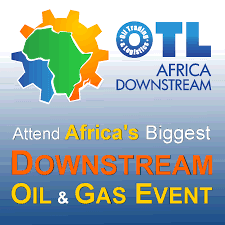Stakeholders at the just concluded 12th edition of the OTL Africa Downstream Week 2018 have called on the federal government to fully privatize the refineries in the country so as to return them to profitability.
The stakeholders who made the call in a communiqué at the event which held in Lagos from the 28th to 31st October, 2018, further urged African governments to fully deregulate the market from price caps and all forms of control as it would go a long way to catalyze development of the downstream petroleum sector across the continent.
Concerned about environmental hazards posed by fuels currently imported into the region, governments were advised to enforce policies on desulphurization of fuels imported into West African countries and direct that only petroleum products with 50PPM or less can be imported into their countries.
Operators called on the Legislature to expunge all provisions from the Petroleum Industry Governance Bill (PIGB) that constrain market freedom to ensure development of downstream petroleum in Nigeria as according to them, retention of the Petroleum Equalization Fund (PEF) in the Petroleum Industry Governance (PIG) Bill signaled continued price regulation in the fuels market.
Participants called on governments of member countries to consider the modalities of making the entire Gulf of Guinea (GoG) a Safe Anchorage Area (SAA), with a framework that allows cross border patrol and surveillance in the region as it would aid the establishment of a virile shipping cluster in the West African region.
Other areas covered by the communiqué includes,” Realizing the value of regional trade cooperation, industry notes a need to review the ECOWAS Treaty in light of prevailing realities to ensure ease of cross-boundary cooperation in the development of petroleum infrastructure.
“Focused on achieving regional hub status, industry encourages Maritime Administrations in West Africa to benchmark their rates, tariffs and levies against those obtainable in other regions in order to improve competitiveness and attraction for maritime services.
“Mindful of its benefits for industrial and domestic energy, operators are encouraged to explore increased deployment of propane gas in powering industrial and automotive machinery.
“Convinced about the safety and efficiency of LPG, stakeholders urge governments and operators to increase efforts at grassroots sensitization and introduce more incentives to encourage the transition, penetration and utilization of LPG across the region.
“Understanding the challenges inherent in the acquisition of LPG cylinders, governments are encouraged to promote measures for the widespread deployment of LPG cylinders to all parts of the continent.
“Realizing the role technology has to play in the future of the downstream industry, industry calls for development of a regulatory framework for the integration of technological innovations into contemporary downstream petroleum operations.
“Concerned about capacity deficit in digital and new technology awareness, industry calls on educational institutions to review existing curricular to ensure skill sets required to carry Africa’s downstream sector into the future are developed.
“Determined to achieve optimum efficiency from market potentials, industry stakeholders are advised to embrace synergy within and beyond national boundaries as a means of fully optimizing their operations across the downstream value chain”.
Send your news, press releases/articles to augustinenwadinamuo@yahoo.com. Also, follow us on Twitter @ptreporters and on Facebook on facebook.com/primetimereporters or call the editor on 07030661526, 08053908817.

